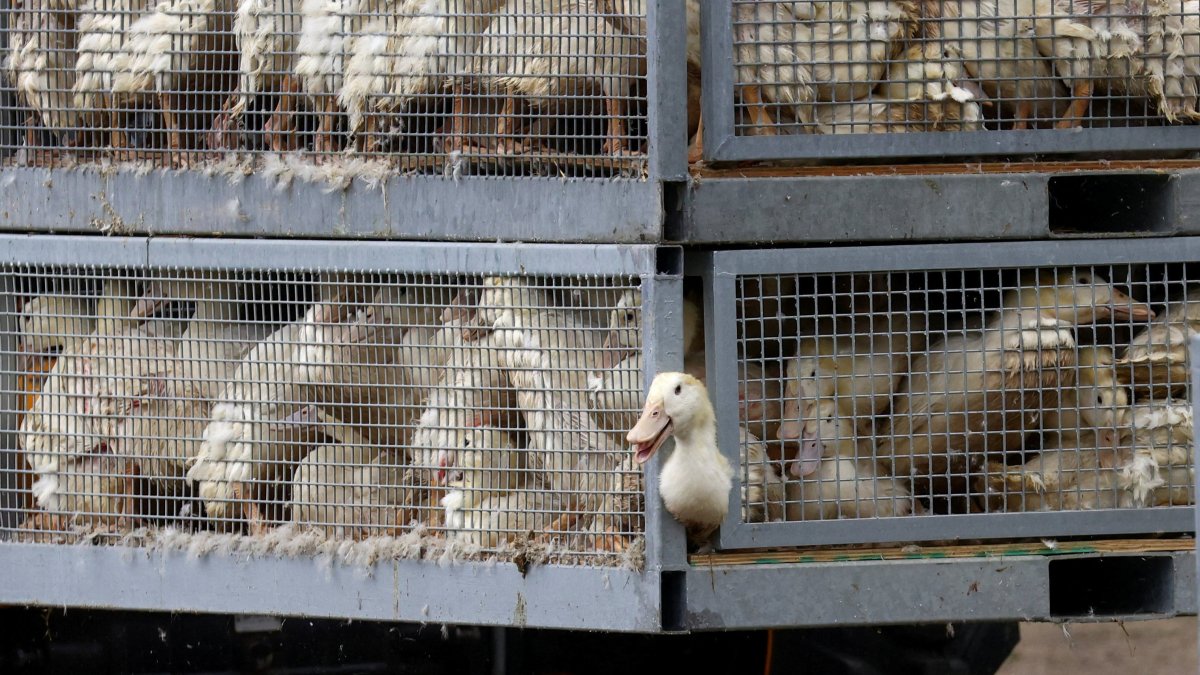More than 30 commercial poultry farms in Germany have culled their animals amid avian influenza, German animal health institute said Sunday.
According to initial surveys, around 400,000 chickens, ducks, geese and turkeys have been culled and subsequently disposed of to prevent further spread of the disease.
“We had similar figures in 2021, the strongest ‘avian influenza year’ to date. It is impossible to predict how the situation will develop, but the FLI [Friedrich-Loeffler-Institut] is expecting a further increase in outbreaks and cases,” institute head Christa Kühn said. “The situation remains highly dynamic.”
The heaviest losses have occurred in the north-eastern state of Mecklenburg-Vorpommern and Brandenburg, which surrounds Berlin. In Mecklenburg-Vorpommern, nearly 150,000 laying hens were culled in two locations.
On Sunday, a district in the eastern state of Brandenburg announced that another 130,000 birds would be killed following the detection of bird flu cases.
Thousands of livestock have been pre-emptively culled in several other German states after FLI analyses confirmed infections with the highly contagious H5N1 avian influenza virus.
Wild birds migrating to southern regions are seen as the main carriers of avian influenza. While the disease is now present in Germany year-round, the risk of infection rises sharply during the autumn migration.
According to the FLI, the current wave of infections has started earlier than usual. Cranes have also been affected to an unprecedented extent, particularly in north-west Brandenburg, where they are dying in large numbers.
According to Kühn, the avian influenza virus H5N1 was detected in 65 cases in wild birds. In total, however, many more infected animals have died, she said.
The risk of infection from infected wild birds and their droppings remains very high.
“I urge everyone to avoid contact with dead wild birds and to refrain from visiting poultry flocks afterwards. The avian influenza virus can also be spread indirectly through contaminated footwear or equipment,” warned Kühn.
She said there is a low risk of infection for the general population. But she noted that “people who come into contact with infected animals, such as the teams that clear affected poultry houses or collect dead wild birds, have a moderate risk of infection and therefore wear protective clothing.”
The peak of the bird migration has yet to arrive, keeping the risk of avian influenza entering poultry flocks high.
Livestock farmers have been urged to strictly follow hygiene protocols and prevent any contact between their birds and wild birds.
The Central Association of the German Poultry Industry cautioned: “If we do not act, we jeopardize not only animal health but also the security of supply.”
Farmers can claim financial damages from the animal disease fund. Agriculture Minister Alois Rainer advocated raising the upper limit of compensation payments for animals that have to be culled from the current €50 ($58) to up to €110.
As a rule, the market value is the basis for compensation payments from the animal disease fund.

The Daily Sabah Newsletter
Keep up to date with what’s happening in Turkey,
it’s region and the world.
SIGN ME UP
You can unsubscribe at any time. By signing up you are agreeing to our Terms of Use and Privacy Policy.
This site is protected by reCAPTCHA and the Google Privacy Policy and Terms of Service apply.

